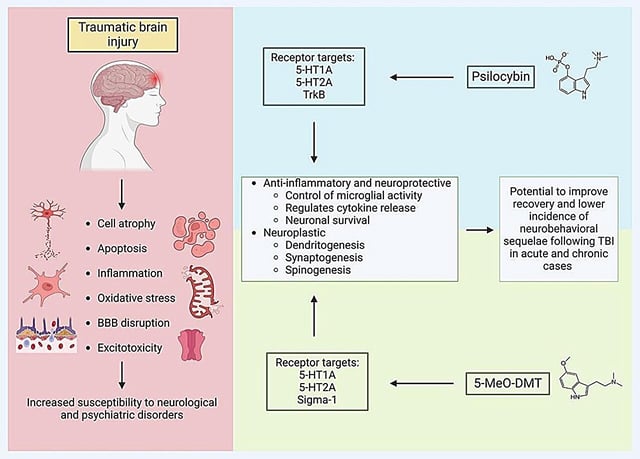Overview
- The peer‑reviewed paper appears in Progress in Neuro‑Psychopharmacology and Biological Psychiatry in 2025.
- Synthesizing preclinical and clinical literature, the review links these psychedelics to reduced neuroinflammation and increased neuroplasticity after injury, with possible benefits for depression, anxiety, and PTSD.
- Proposed mechanisms involve 5‑HT1A and 5‑HT2A receptors, with psilocybin also engaging TrkB and 5‑MeO‑DMT engaging sigma‑1 receptors associated with neuroprotection.
- The work was led by UVic’s Christie Lab (Zoe Plummer, Josh Allen, Justin Brand, Brian Christie) with collaborators Leah Mayo at the University of Calgary and Sandy Shultz at Vancouver Island University.
- Given that TBI affects about 69 million people annually and lacks approved pharmacotherapies, the authors call for targeted clinical trials to evaluate age‑ and sex‑specific responses and to establish dosing and safety for TBI.



